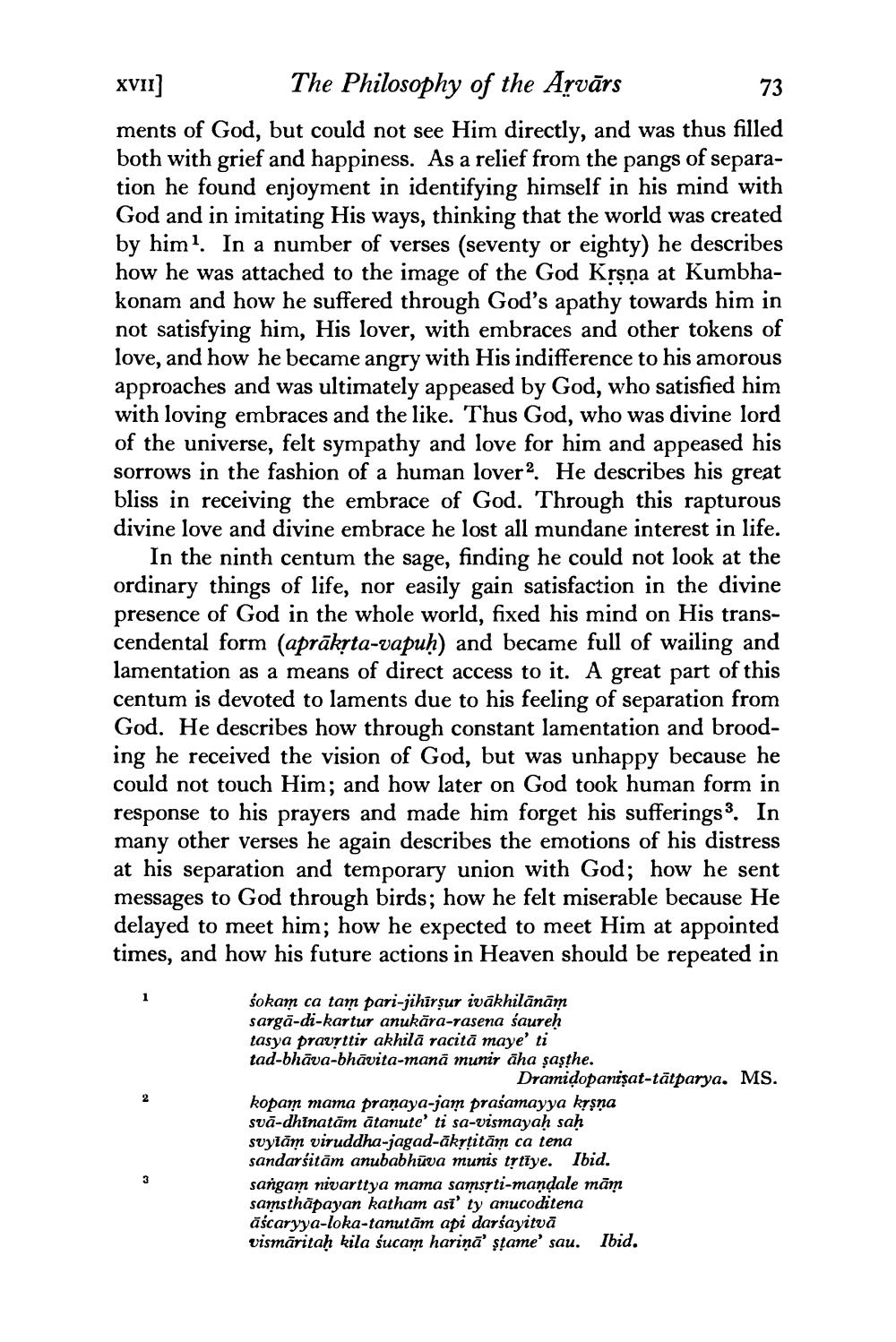________________
XVII]
The Philosophy of the Arvārs
73
ments of God, but could not see Him directly, and was thus filled both with grief and happiness. As a relief from the pangs of separation he found enjoyment in identifying himself in his mind with God and in imitating His ways, thinking that the world was created by him1. In a number of verses (seventy or eighty) he describes how he was attached to the image of the God Kṛṣṇa at Kumbhakonam and how he suffered through God's apathy towards him in not satisfying him, His lover, with embraces and other tokens of love, and how he became angry with His indifference to his amorous approaches and was ultimately appeased by God, who satisfied him with loving embraces and the like. Thus God, who was divine lord of the universe, felt sympathy and love for him and appeased his sorrows in the fashion of a human lover2. He describes his great bliss in receiving the embrace of God. Through this rapturous divine love and divine embrace he lost all mundane interest in life.
In the ninth centum the sage, finding he could not look at the ordinary things of life, nor easily gain satisfaction in the divine presence of God in the whole world, fixed his mind on His transcendental form (aprākṛta-vapuḥ) and became full of wailing and lamentation as a means of direct access to it. A great part of this centum is devoted to laments due to his feeling of separation from God. He describes how through constant lamentation and brooding he received the vision of God, but was unhappy because he could not touch Him; and how later on God took human form in response to his prayers and made him forget his sufferings3. In many other verses he again describes the emotions of his distress at his separation and temporary union with God; how he sent messages to God through birds; how he felt miserable because He delayed to meet him; how he expected to meet Him at appointed times, and how his future actions in Heaven should be repeated in
1
2
3
śokam ca tam pari-jihirṣur ivākhilānām sarga-di-kartur anukara-rasena śaureḥ tasya pravṛttir akhilā racitā maye' ti tad-bhava-bhävita-manā munir aha şaşthe.
Dramidopaniṣat-tātparya. MS.
kopam mama pranaya-jam praśamayya kṛṣṇa sva-dhinatām atanute' ti sa-vismayaḥ saḥ svyłam viruddha-jagad-ākṛtitam ca tena sandarsitām anubabhuva munis tṛtiye. Ibid. sangam nivarttya mama samsṛti-maṇḍale mām samsthapayan katham ast' ty anucoditena aścaryya-loka-tanutām api darśayitvā vismāritaḥ kila sucam harina' şṭame' sau.
Ibid.




